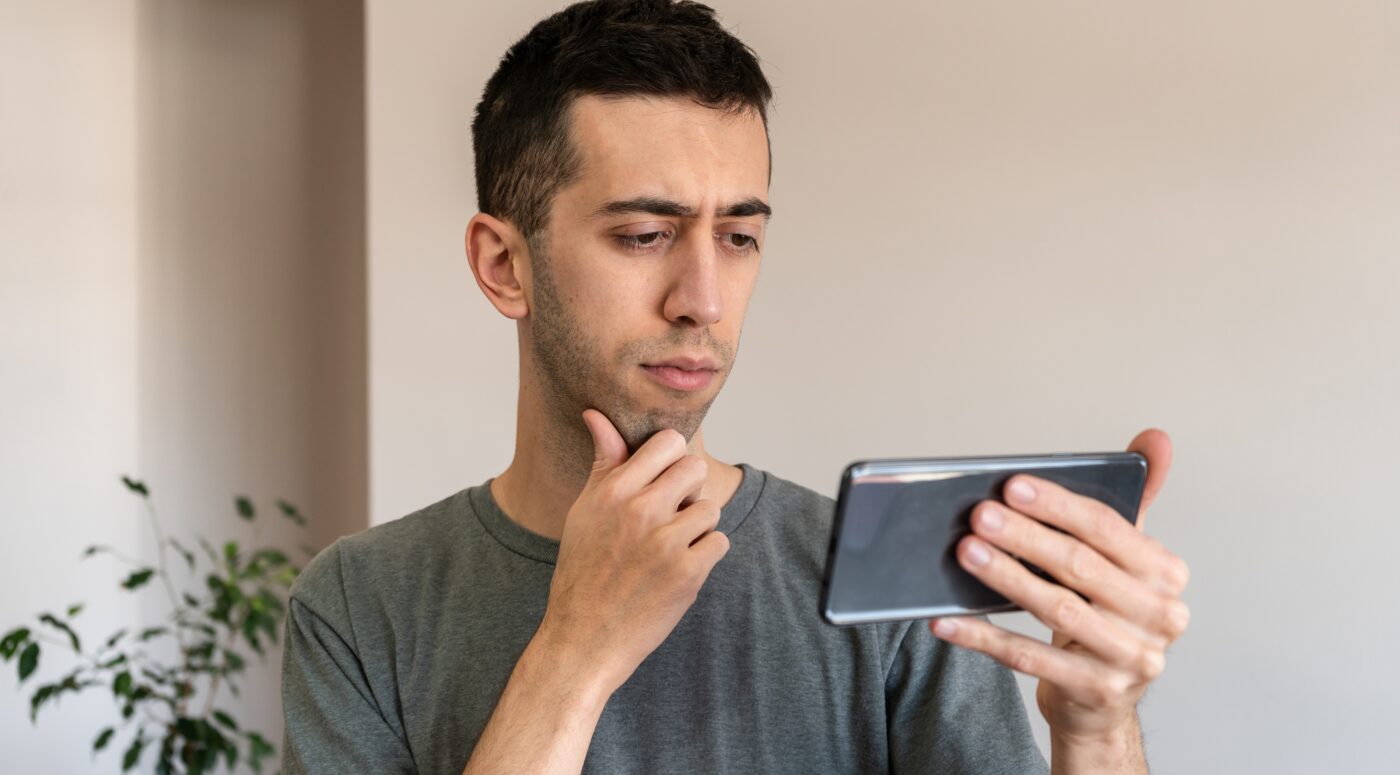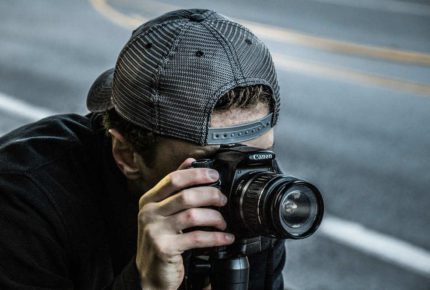

If you or someone you care about has been charged with an offence involving indecent images for the first time, you are understandably concerned about what this could mean for your personal and professional life. You are also likely wondering about the criminal investigation process and what might happen if the case goes to trial and you are found guilty. This article covers the basics of the offences of downloading or possessing indecent images in the UK and some of the most common questions surrounding the offence.
What counts as an indecent image in the UK?
We are all familiar with what ‘images’ are in the broad sense (though the legal definition is quite wide, meaning even data that could later be turned into an image counts as an ‘image’), but what is classed as indecent? What makes these images illegal?
Indecent images – which may be photographs or pseudo-photographs (e.g. deep-fakes) – are those that depict sexual activity involving children or other non-consenting individuals. These may include pictures, videos, animations, or computer-generated images. These images may also be known as ‘prohibited material’ under the Protection of Children Act 1978, depending on their content and the age of the person depicted in them.
It is for the court to decide what is ‘indecent’ in the context of the case – there are no exact criteria.
What is the offence of downloading indecent images?
In English criminal law, there is no specific offence of ‘downloading’ images. Instead, the matter is prosecuted as the offence of ‘making’ indecent images. Making indecent images is an offence governed by Section 1 of the Protection of Children Act 1978. Note that ‘making’ does not actually entail creating or organising the taking of the image yourself (though it might). In the context of downloads, the act of downloading an image is what ‘makes’ it.
According to the Sentencing Council, for there to be an offence, there must be ‘a deliberate and intentional act, done with the knowledge that the image is, or is likely to be, an indecent photograph or pseudo-photograph of a child.’
There are many different ways in which one might ‘make’ an indecent image on a device, which could be a PC, tablet, or mobile phone. These include:
- Downloading the image directly onto the device
- Accessing a website where indecent images appear as pop-ups
- Opening an email attachment that contains an indecent image
What is the offence of possessing indecent images?
Possession of indecent images is governed by Section 160 of the Criminal Justice Act 1988 and Section 1 of the Protection of Children Act 1978. But what does ‘possession of an image’ mean? And is viewing the same as possessing?
Under the Protection of Children Act 1978, possession involves having custody and control of the photographs in question, as well as the knowledge that they have such custody and control. There is also a requirement that the person has custody and control of the images with a view to sharing or distributing them – and it doesn’t matter whether it is the defendant showing or distributing them, or someone else (through a file-sharing network, for example).
Under the Criminal Justice Act 1988, possession means broadly the same thing, but there is no requirement that the person possesses the images with a view to sharing or distributing them.
How are indecent images classified?
To simplify the investigation and sentencing process, images are classified depending on how serious they are. There are three main categories: Category A, Category B, and Category C.
- What are Category A indecent images? Category A images are deemed the most serious and are those that depict penetrative sexual activity, sexual activity with an animal, or sadism.
- What is a Category B indecent image? Category B images are those involving non-penetrative sexual activity.
- What does Category C indecent images mean? Category C images are any other indecent images that do not fall into Category A or Category B.
Will I go to jail for having child images?
Having indecent images of a child is a serious offence. Depending on the severity of the case, you may be sentenced to a custodial sentence – meaning a prison sentence or detention in young offenders’ institutions (if aged under 18). The length of the sentence depends on many factors, including any mitigating circumstances and whether it is your first offence.
For downloading (‘making’) an indecent image, the maximum sentence is 10 years imprisonment under the Protection of Children Act 1978. The sentence you are likely to get for a first-time offence, however, will not be that high. First-time offences for Category A images are likely to result in a prison sentence of between 6 months and 3 years. For Category B offences, the sentence is likely to be between 6 months of community service to 1.5 years’ imprisonment. Finally, for Category C images, the punishment is likely to be a community order but could extend to 6 months imprisonment in more serious cases.
For possessing an indecent image, you may face up to 10 years in prison if convicted under the Protection of Children Act 1978, and up to 5 years imprisonment if convicted under the Criminal Justice Act 1988. Again, the sentence you are likely to get as a first-time offender will be less harsh and will be graded according to the nature of the images as described above in relation to ‘making’ offences.
It is also likely that your name will be added to the Sexual Offenders Register.
What else affects sentencing in an indecent images case?
When passing your sentence, the judge will look at factors that aggravate (make worse) the seriousness of the crime, and those that mitigate (lessen) it. Aggravating factors make sentences longer, and mitigating factors make them shorter.
- Aggravating factors include a large number of images, a sustained period of downloading/possessing the images, or if any of the images are especially serious (Category A).
- Mitigating factors include whether it was your first offence, demonstrating true repentance and remorse, or providing evidence that you have taken steps to address your behaviour.
A good criminal defence solicitor will be able to help you identify mitigating factors in your case to reduce the severity of any sentence given.
How long can you go to jail for sending pictures in the UK?
Sending indecent images is an offence of showing or distributing images, which we have not covered in detail here. It is also governed by Section 1 of the Protection of Children Act 1978, and as such, the maximum sentence for this offence is 10 years imprisonment.
Can you get a caution for indecent images?
Yes, you may be given a caution for an indecent images offence. In England and Wales, police may issue a caution as an alternative to prosecution in certain circumstances. This is known as a ‘simple caution’ and involves the person admitting guilt and accepting responsibility for the offence. It allows the offender to avoid going through court proceedings, but can be taken into account by a court if they are convicted of another similar offence.
How long does an indecent images investigation take?
One of the most common questions we get about indecent images offences is, ‘How long does it take police to investigate indecent images?’ Unfortunately, there is no straight answer. Every case is different, so the length of time it takes from investigation to final disposal can vary significantly.
Generally speaking, investigations into the possession and distribution of indecent images take much longer than investigations into making an image (for example through downloading). This is because police officers have to investigate each instance of a particular image being shared or downloaded. In some cases, the investigation could take up to several months.
In most cases, if an individual is suspected of committing an offence relating to indecent images, they will be invited to an interview under caution with the police. This can take place at a police station or elsewhere depending on the circumstances. During this time, evidence may be gathered and analysed, and depending on the outcome, a decision will be made as to whether or not to pursue criminal charges.
In summary, it is difficult to predict how long an indecent images investigation will take, as each case is different. However, early legal advice can help ensure your rights are protected and you receive a fair hearing throughout the process.
Where to get more help with indecent images offences?
If you are facing an investigation into an offence relating to indecent images, you must seek legal advice as soon as possible so that your rights are protected. An experienced solicitor can provide advice on the best course of action, and they might even be able to get your case dropped before it goes to trial. For a free, no obligation, and non-judgemental conversation about your options, get in touch with the team at Stuart Miller Solicitors today.
OUR COMMITMENTS TO YOU:
-
Responsive
A legal expert will consult you within 24 hours of making an enquiry.
-
Empathetic
We will always treat you with trust, understanding and respect.
-
Specialised
Your case will be handled by an expert who specialises in your type of offence.
-
Proactive
We will take early action to end proceedings as soon as it is practically and legally possible to do so.
-
Engaged
You will be kept updated on your case at all times. We will provide a named contact available to answer your questions.
-
Caring
We understand this is a difficult and stressful time for you and your family. Our team will support you every step of the way.
-
Tenacious
We will never give up on your case. We fight tirelessly to get you the best possible outcome.

